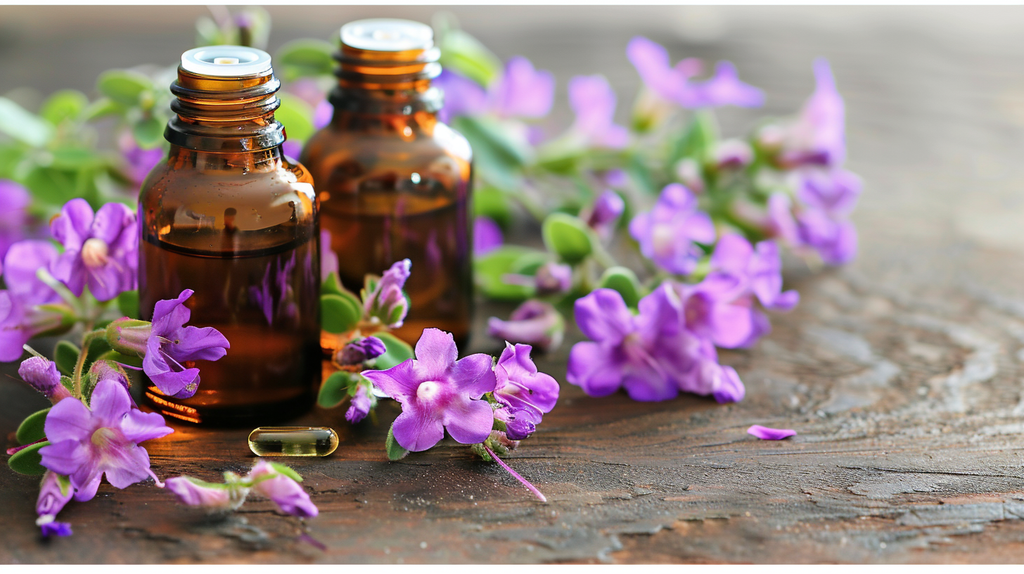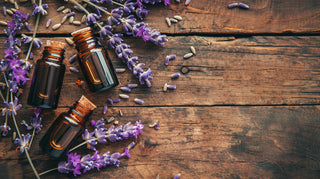Herbal remedies offer a natural and holistic approach to managing chronic inflammation. By understanding the properties of these herbs and how to use them safely and effectively, individuals can take an active role in managing their health and wellbeing.
Key Takeaways
| What is chronic inflammation? | A long-term inflammatory response that can damage tissues and contribute to various health conditions. |
|---|---|
| What are herbal remedies? | Plant-based medicines with therapeutic properties. |
| How can herbal remedies help with chronic inflammation? | Certain herbs possess anti-inflammatory properties that may reduce inflammation and pain. |
| Are herbal remedies a cure for chronic inflammation? | No, they are a natural approach that can complement conventional treatment plans. |
| What are some safety considerations for using herbal remedies? | It's important to consult a naturopath or healthcare provider before using herbs, especially if pregnant, breastfeeding, or taking medications. |

Introduction
As a registered naturopath with a deep understanding of natural healing methods, I frequently see patients struggling with chronic inflammation. This condition, characterized by a long-term inflammatory response in the body, can contribute to a variety of health concerns, including pain, fatigue, and even disease development. While conventional medicine offers effective treatment options, many patients seek natural approaches to manage their symptoms and support their overall well-being.
I aim to empower you with knowledge for your healing journey.
Understanding Chronic Inflammation
Inflammation is a natural process triggered by the body's immune system to fight infection and injury. However, when this response becomes chronic and persists for extended periods, it can damage healthy tissues and contribute to various health problems. Chronic inflammation is linked to conditions like arthritis, autoimmune diseases, cardiovascular disease, and even certain cancers.
Exploring Anti-inflammatory Herbs
The natural world offers a treasure trove of plants with remarkable therapeutic properties. Many herbs boast anti-inflammatory effects, making them valuable allies in managing chronic inflammation. Here are some of the most well-researched examples:
-
Turmeric: This vibrant yellow spice contains curcumin, a potent anti-inflammatory compound with numerous research studies demonstrating its efficacy in reducing pain and inflammation associated with arthritis and other conditions.
-
Ginger: A common kitchen staple, ginger is not just flavorful but also possesses anti-inflammatory properties. Studies suggest ginger may be as effective as pain relievers like ibuprofen in managing pain after surgery.
-
Boswellia: This resin, extracted from the Boswellia serrata tree, has been used in traditional medicine for centuries for its anti-inflammatory properties. Research indicates its potential benefits in managing osteoarthritis and other inflammatory conditions.
-
Cat's Claw: This Amazonian vine possesses anti-inflammatory and immune-modulating properties. While more research is needed, some studies suggest its potential benefits in managing rheumatoid arthritis.
-
Green Tea: Rich in antioxidants and polyphenols, green tea offers a natural approach to reducing inflammation. Studies have shown green tea consumption may be linked to a decreased risk of inflammatory diseases.

Harnessing the Healing Power of Herbs: Practical Tips and Considerations
While the herbs mentioned above offer promising anti-inflammatory properties, here are some practical tips to maximize their benefits:
- Quality Matters: Source your herbs from reputable vendors who prioritize organic, unadulterated products.
- Dosage is Key: Don't underestimate the importance of proper dosage. Consult a naturopathic doctor or herbalist to determine the appropriate amount for your specific needs and health condition.
- Preparation Methods: Different herbs benefit from various preparation methods. Some herbs are best consumed as teas, while others might be more effective in tinctures or capsules.
Introducing Into Your Daily Routine
Incorporating anti-inflammatory herbs into your daily routine can be a simple and effective way to manage chronic inflammation. Here are some suggestions:
-
Turmeric (Curcuma longa): You can add turmeric to your meals while cooking, or drink it as a tea. Another popular way to consume turmeric is to mix it with warm milk and honey to make “golden milk”.
-
Ginger (Zingiber officinale): Ginger can be added to a variety of dishes, including stir-fries, soups, and teas. You can also consume it raw or in the form of a supplement.
-
Green Tea (Camellia sinensis): Simply replace one of your daily cups of coffee or regular tea with green tea. You can also use green tea as a base for smoothies.
-
Frankincense (Boswellia serrata): Frankincense is typically used as an essential oil. You can add a few drops to a diffuser or mix it with a carrier oil and apply it topically. Please note that essential oils should not be ingested unless under the guidance of a healthcare professional.
- Rosemary (Rosmarinus officinalis): Rosemary can be used in cooking to flavor dishes like chicken, lamb, and potatoes. It can also be steeped in hot water to make a tea.
Remember, it’s important to consult with a healthcare provider before starting any new treatment regimen, especially if you’re currently taking any medications, as some herbs can interact with certain drugs.

Beyond Herbs: A Holistic Approach to Managing Inflammation
Remember, incorporating herbal remedies is just one piece of the puzzle when addressing chronic inflammation. Here are some additional strategies to consider for a holistic approach:
-
Dietary Adjustments: Refining your diet is crucial. Limiting pro-inflammatory foods like processed foods, sugary drinks, and unhealthy fats is key. Conversely, focus on consuming an anti-inflammatory diet rich in fruits, vegetables, whole grains, and healthy fats like those found in fish and avocado.
-
Lifestyle Modifications: Chronic stress can exacerbate inflammation. Explore stress-management techniques like yoga, meditation, or deep breathing exercises.
- Regular Exercise: Aim for regular physical activity tailored to your fitness level. Exercise helps reduce inflammation and promotes overall well-being.

As a naturopath, I am committed to providing my patients with evidence-based information and personalized guidance. I believe in empowering individuals to take an active role in their health journey through natural approaches that complement conventional medicine.
Throughout this guide, I have strived to present well-researched information and highlight the scientific basis behind the use of herbal remedies for chronic inflammation. References to credible sources are included.
The Journey to Healing: A Collaborative Effort
Remember, managing chronic inflammation is a collaborative effort. While this guide offers a foundation of knowledge, consulting a qualified naturopathic doctor is vital for personalized recommendations and ongoing support. Together, we can explore the potential of natural remedies and conventional treatment options to create a holistic approach to healing and optimal well-being.
Important Considerations and Safe Practices
It's crucial to remember that herbal remedies are not a magic bullet for chronic inflammation. While they can be a valuable addition to your holistic healing plan, they should not replace conventional medical care. Consulting with a naturopathic doctor or healthcare provider is essential before using any herbal remedies, especially if you are pregnant, breastfeeding, or taking medications. Additionally, some herbs can interact with certain medications, so a qualified healthcare professional can guide you towards safe and effective use.
Chronic inflammation can be a debilitating condition, but with the right approach, you can manage your symptoms and promote healing. Exploring the potential of herbal remedies, alongside conventional treatment plans and a healthy lifestyle, can empower you to take charge of your well-being. Remember, this guide serves as a starting point, and consulting a qualified naturopath is vital for personalized guidance on your path to natural healing.🌿







